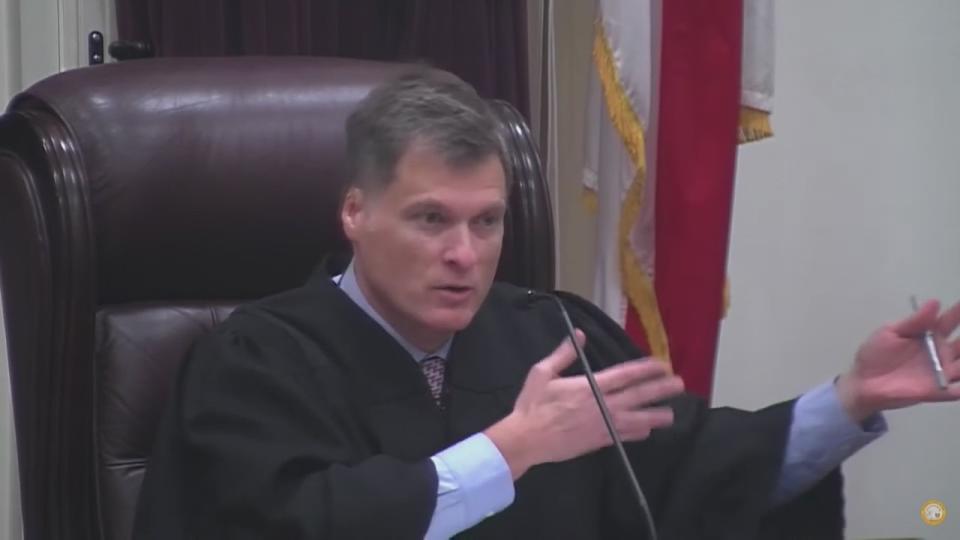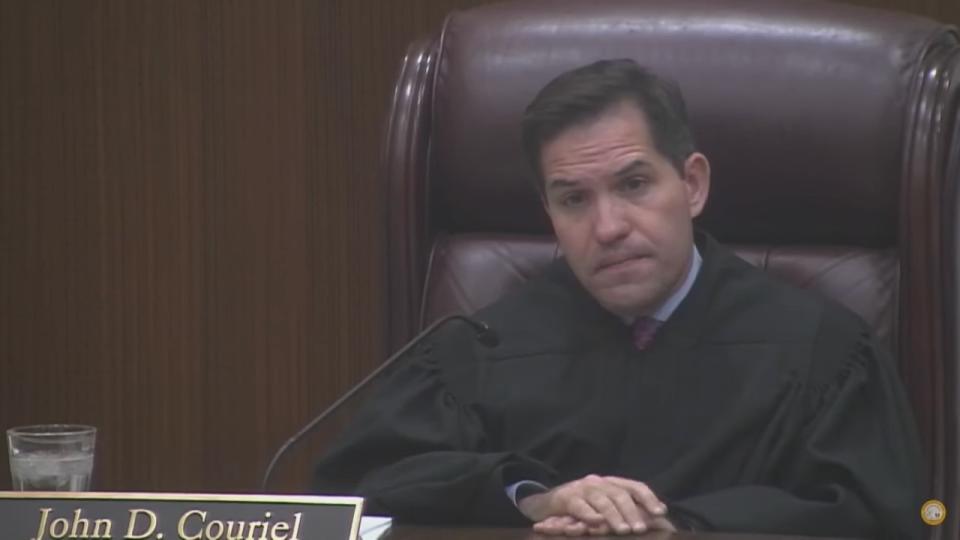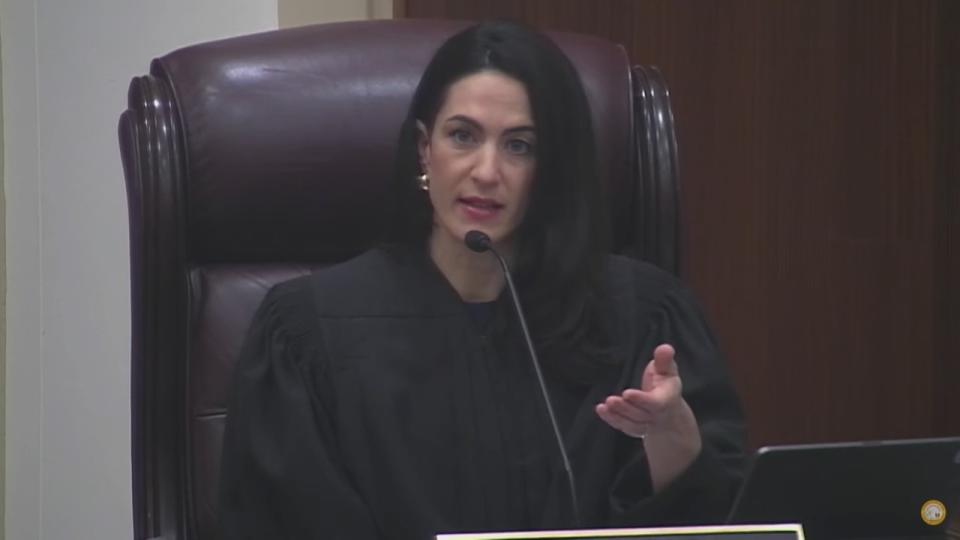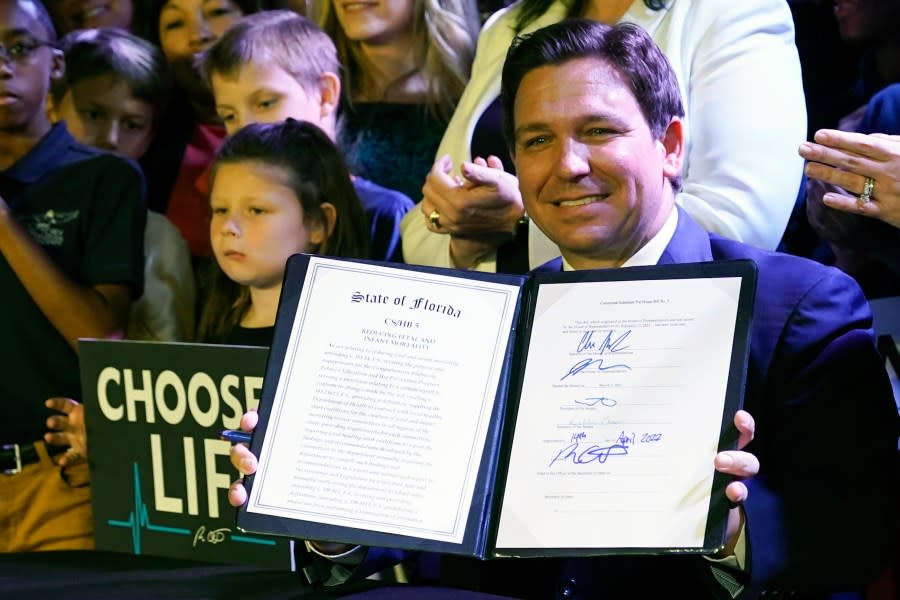‘The people of Florida aren’t stupid’: Court pushes back on arguments against abortion amendment
TAMPA, Fla. (WFLA) — Four months after Florida Attorney General Ashley Moody asked the state Supreme Court to weigh in on a proposed abortion rights amendment, justices heard oral arguments in the case on Wednesday.
Moody asked the court to strike down the newly-designated Amendment 4, despite the measure qualifying for the 2024 ballot with nearly one million valid signatures, as of Wednesday. The Amendment to Limit Government Interference with Abortion would enshrine the right to abortion in the Florida Constitution, stating in part, “No law shall prohibit, penalize, delay, or restrict abortion before viability.”
The state’s highest court acts as a gatekeeper for the ballot, combing over each qualifying amendment to determine if voters can understand the language of the ballot summary. Additionally, a proposed amendment must be limited to a single subject.
Florida abortion measure qualifies for 2024 ballot, but its fate hinges on court ruling
“Wolf in sheep’s clothing”
In the courtroom, the state doubled down on its argument that the amendment’s ballot summary is misleading because the average voter does not understand terms like “viability.” Justice John D. Couriel asked Nathan A. Forrester, who appeared on Moody’s behalf, to consider “the degree of knowledge we should attribute to the voter.” Justices posed the question to attorneys on both sides of the issue.

Chief Justice Carlos G. Mu?iz mused if the court could decide against the amendment without a separate case ruling on basic rights for the unborn under the Florida Constitution, but his qualms with the state’s arguments did not end there.
When speaking to Mathew D. Staver, who appeared on behalf of Liberty Council and Florida Voters Against Extremism, Mu?iz pushed back against the idea that voters will not understand the “sweeping” legislative impacts of the bill. The ballot summary clarifies that the measure “does not change the Legislature’s constitutional authority to require notification to a parent or guardian before a minor has an abortion.”
“You’re saying, ‘This is a wolf.’ And a wolf it may be,” Couriel said. “But it seems like our job is to answer whether it’s a wolf in sheep’s clothing. That’s all we get to do.”

Couriel said Staver’s argument may be a persuasive and compelling reason to vote against the measure, but it does not appear to fit the task set out before the court, which is to determine the amendment’s viability.
“Fundamental to our democracy”
Proponents of the measure have filed briefs alleging Moody’s arguments are politically-motivated. Courtney Brewer, appearing on behalf of the amendment’s sponsors, Floridians Protecting Freedom, began her remarks by saying the right to amend the state constitution is a crucial facet of democracy.
“This amendment follows the directive given by the U.S. Supreme Court in Dobbs, that the people should decide how their state may govern abortion,” Brewer said.
Justice Meredith L. Sasso expressed concerns with voters’ understanding of the amendment’s legal implications, as well as their understanding of terms like “viability.” Brewer maintained that Floridians will understand the summary by having the language of amendment with them at ballot box.
“There is no question that voters understand what viability means in the abortion context,” Brewer said. “This a term, and its meaning, that has become a part of the cultural fabric of our nation.”

In Forrester’s rebuttal, he reiterated that the language of the ballot summary is unclear, and voters “need to know effects of what’s going on here.” Mu?iz countered that there is “no way” a summary could address every single issue one could have with a particular amendment and the details would “have to be worked out” in the future.
“It imposes an impossible burden on the people proposing the amendment,” Justice Charles T. Canady said. “It seems to me like all of these things will need to be argued out in the political process … We aren’t given the power in the Constitution to impose such a restriction.”
“The people of Florida aren’t stupid,” Mu?iz concurred. “They can figure this out.”
Where do abortion rights stand in Florida?
The high-profile case is viewed as a “test” of the court, which previously interpreted a privacy clause in the state constitution to strike down some abortion restrictions. Justices were not expected to make a decision on Wednesday.
Abortion rights advocates are watching closely, as their ruling could be a bellwether of what’s to come when justices consider the 15-week abortion ban passed two years ago. That case is blocking a more restrictive six-week ban while it’s tied up in the courts. The shorter deadline comes before many women learn they are pregnant.

Despite the 15-week ban, Florida remains a haven for women travelling from neighboring stricter states to have abortions. The state’s highest court could issue a decision that sends shockwaves throughout the region.
6,566 abortions were performed on non-Florida residents in 2023, according to the Florida Agency for Health Care Administration.
The Florida Supreme Court has taken a conservative shift in recent years, with five of the seven justices appointed by Gov. Ron DeSantis. The other two were put on the bench by then-Republican Gov. Charlie Crist.
Poll: Over 60% of Florida voters support proposed abortion, marijuana amendments
In a news conference Tuesday, DeSantis said he supported his attorney general’s effort in arguing against the amendment. Florida Democratic Party Chair Nikki Fried said in a statement that Wednesday’s arguments “made clear that the question before us is best answered by Florida voters.”
If the amendment is allowed on the ballot, 60% of voters would have to approve it.
For the latest news, weather, sports, and streaming video, head to WFLA.
